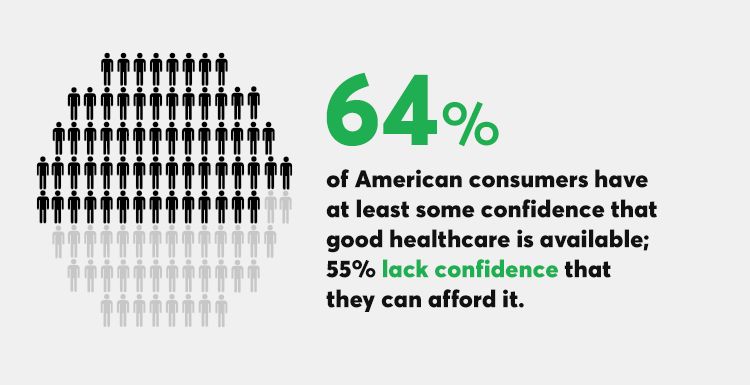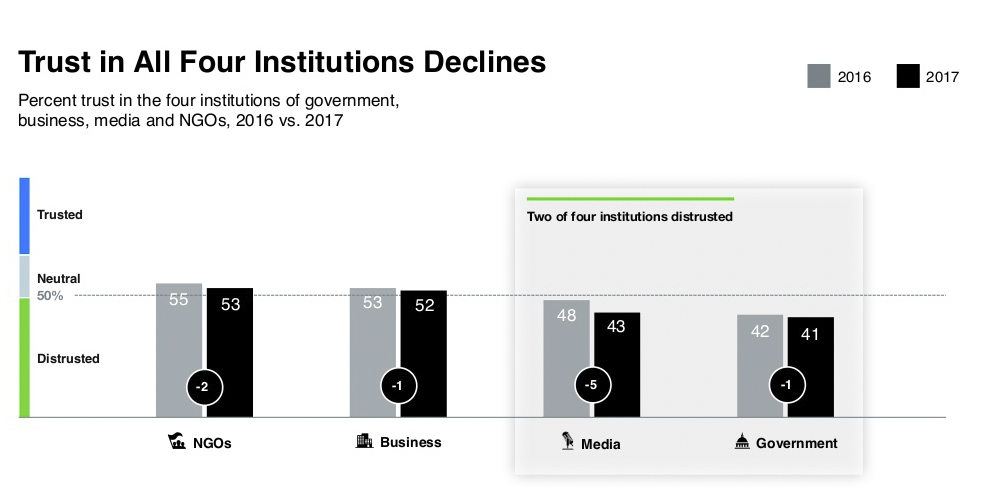 Availability of quality healthcare, followed by affordable care, are the top two issues concerning U.S. consumers surveyed just prior to Donald Trump’s inauguration as the 45th U.S. President. Welcome to Consumer Reports profile of Consumer Voices, As Trump Takes Office, What’s Top of Consumers’ Minds?
Availability of quality healthcare, followed by affordable care, are the top two issues concerning U.S. consumers surveyed just prior to Donald Trump’s inauguration as the 45th U.S. President. Welcome to Consumer Reports profile of Consumer Voices, As Trump Takes Office, What’s Top of Consumers’ Minds?
“Healthcare for All, Only Better,” Consumer Reports summarizes as the top-line finding of the research. 64% of people are confident of having access to good healthcare, but 55% aren’t sure they can afford healthcare insurance to be able to access those services. Costs are too high, and choices in local markets can be spotty or non-existent. The high cost of prescription drugs is part of consumers health cost confidence-gap (with Consumer Reports calling out the EpiPen pricing controversy growing in 2016).
After healthcare, U.S. consumers in Post-Trump America are most worried about:
- Affordable education
- Food safety and quality
- The costs of living for energy, food, taxes, and housing, and
- Personal data security and privacy.
Consumer Reports will continue the Consumer Voices survey over time as a tracking poll, to gauge where U.S. consumers’ feelings move through President Trump’s time in office and beyond.
 Health Populi’s Hot Points: An important benchmark finding in this survey is that two-thirds of Americans do not trust the government to protect their interests as consumers. This finding is consistent with the 2017 Edelman Trust Barometer survey released last week at the Davos World Economic Forum.
Health Populi’s Hot Points: An important benchmark finding in this survey is that two-thirds of Americans do not trust the government to protect their interests as consumers. This finding is consistent with the 2017 Edelman Trust Barometer survey released last week at the Davos World Economic Forum.
This year’s Barometer notes a “global implosion of trust” among the world’s citizens (gauged in 25 countries). Trust across all four institutions decline: for NGOs, business, media, and government, shown in the bar chart.
In the U.S., the trust gap between U.S. consumers trusting the four institutions of government, business, media and NGOs was a 21 point chasm (compared with 19 points in the UK and 18 points in France).
 Check out the specific case of trust and fear in the U.S. Edelman gauged how U.S. adults felt about Donald Trump versus Hillary Clinton with respect to how fearful the voters were about the “system failing and being fearful” vs. simply feeling “fearful,” shown in the third exhibit. Note the greater proportion (67%) of Americans who were fearful, voting for Donald Trump for President. One-third fewer Americans felt fearful, voting for Hillary Clinton for the nation’s top job.
Check out the specific case of trust and fear in the U.S. Edelman gauged how U.S. adults felt about Donald Trump versus Hillary Clinton with respect to how fearful the voters were about the “system failing and being fearful” vs. simply feeling “fearful,” shown in the third exhibit. Note the greater proportion (67%) of Americans who were fearful, voting for Donald Trump for President. One-third fewer Americans felt fearful, voting for Hillary Clinton for the nation’s top job.
There’s one further finding in the Edelman Trust Barometer that will play into the groundswell among U.S. health citizens for rational health reform. That is that peers are now seen to be as credible as experts: “a person like yourself” is now tied for first place as being the most credible spokesperson when forming an opinion of a company.
Least credible are company CEOs, members of Board of Directors, and government officials and regulators.
Consumer Reports poll reveals a U.S. public looking for a Commons for health…and to each other for opinions and counsel about what’s credible in the market (consider this peer-to-peer healthcare). Government officials, regulators, and health care businesses (especially insurance and pharma/life sciences) — pay attention. The CR research combined with Edelman’s 2017 Trust Barometer paint a picture of activated consumers who demand more transparency, accessibility, and accountability in their interactions with institutions. And health care is at the top of this list in an era of the implosion of trust.




 I am so grateful to Tom Lawry for asking me to pen the foreword for his book, Health Care Nation,
I am so grateful to Tom Lawry for asking me to pen the foreword for his book, Health Care Nation,  Thanks to Feedspot for naming this blog, Health Populi, as a
Thanks to Feedspot for naming this blog, Health Populi, as a